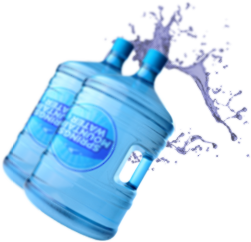
Home / Physical Fitness / Environmental Extremes / Stay hydrated in the winter months
Stay hydrated in the winter months
Most people associate dehydration with hot weather, but you can get dehydrated in cold weather too. It isn’t always easy to get the fluids you need, especially when you’re on a mission. If you’re active outside for less than 2 hours, your risk for getting dehydrated is probably pretty low. But if you’re out in the cold for hours or even days, the combination of heavy clothing and high-intensity activity that makes you sweat could lead to dehydration.
Dehydration happens in cold weather for a number of reasons. Cold weather tends to move blood and other body fluids from your arms and legs to your core, increasing your urine output. Cold weather also decreases your body’s thirst sensation, which is normally an early sign of mild dehydration. Other signs of dehydration include headache, dry mouth, fatigue, muscle cramps, constipation, dry skin, and feeling dizzy or light-headed.
One way to see how hydrated you are is to check the color and amount of your urine. (Snow makes a good test spot.) Dark urine in smaller amounts than usual indicates dehydration. Ideally, your urine should be light yellow.
Are you hydrated? Take the urine color test: Hydrated shows color from Optimal as very pale yellow to Well Hydrated as medium yellow. Dehydrated shows dark yellow colors. You need to drink more water. Brown color: Seek medical aid. May indicate blood in urine or kidney disease. Some vitamins and supplements might cause a darkening of the urine unrelated to dehydration. Adapted from USAPHC by the Human Performance Research Center. hprc-online.org
Water and sports drinks are the best fluids to help you stay hydrated, even in cold weather. Energy drinks can have diuretic effects, dehydrating your body, so avoid using them as a substitute for water or sports drinks. Also avoid drinking alcohol in cold weather. It might make you feel warm initially, but it can reduce your body’s ability to retain heat.
When you exercise in the cold, don’t rely on thirst to tell you when you need to drink. Drink often and before you’re thirsty. You should take in 3–6 quarts of fluid per day (including what’s in your food) during cold-weather training and operations. Make sure to take in enough electrolytes (minerals in your blood such as sodium and potassium) if you’ll be out for more than 2 hours. Drinking too much plain water can cause hyponatremia (low sodium levels in your blood), which can result in severe brain damage or death.
Resources
Hawkins, M. N., Raven, P. B., Snell, P. G., Stray-Gundersen, J., & Levine, B. D. (2007). Maximal oxygen uptake as a parametric measure of cardiorespiratory capacity. Medicine & Science in Sports & Exercise, 39(1), 103–107. doi:10.1249/01.mss.0000241641.75101.64
Higgins, J. P., Tuttle, T. D., & Higgins, C. L. (2010). Energy beverages: Content and safety. Mayo Clinic Proceedings, 85(11), 1033–1041. doi:10.4065/mcp.2010.0381
Kavouras, S. A. (2002). Assessing hydration status. Current Opinion in Clinical Nutrition and Metabolic Care, 5(5), 519–524. doi:10.1097/00075197-200209000-00010
Kenefick, R. W., Hazzard, M. P., Mahood, N. V., & Castellani, J. W. (2004). Thirst sensations and AVP responses at rest and during exercise-cold exposure. Medicine & Science in Sports & Exercise, 36(9), 1528–1534. doi:10.1249/01.mss.0000139901.63911.75
Riesenhuber, A., Boehm, M., Posch, M., & Aufricht, C. (2006). Diuretic potential of energy drinks. Amino Acids, 31(1), 81–83. doi:10.1007/s00726-006-0363-5
Summertime is here and many people are heading towards the mountains for a weekend of hiking, camping, and other exciting outdoor activities. One of the most important things to remember when enjoying fun in the sun is to STAY HYDRATED! The higher altitude of Colorado Springs makes it especially easy to become dehydrated. Here are some statistics from livestrong.com that show how serious dehydration can be in high altitude:
- Humidity is lower in high altitudes and sweat evaporates quickly. Because of this, you may not realize how much water you are losing through exertion.
- The lower oxygen levels make you breathe in and out faster and more deeply, so that you lose more water through respiration.
-According to the Wilderness Medical Society, you lose water through respiration at high altitude twice as quickly as you do at sea level.
- High altitude can also make you need to urinate more often and can blunt your thirst response, putting you at even greater risk of dehydration.
As you can see, staying hydrated is IMPORTANT! So prevent dehydration and fill up a few water bottles with some ice cold, delicious, Springs Mountain Water before you go outside next time!
Read the full article here:
http://www.livestrong.com/article/435265-why-do-you-need-to-drink-a-lot-of-water-at-a-high-altitude/
We all know water is important, but do we know exactly HOW important? Check out this interesting comparison between water and Coke!
WATER
COKE
YOU SHOULD KNOW
Now the question is; would you like a glass of Springs Mountain Water or a Coke?
Source: http://www.collective-evolution.com/2012/04/10/hydration-or-acid-water-versus-coca-cola/
